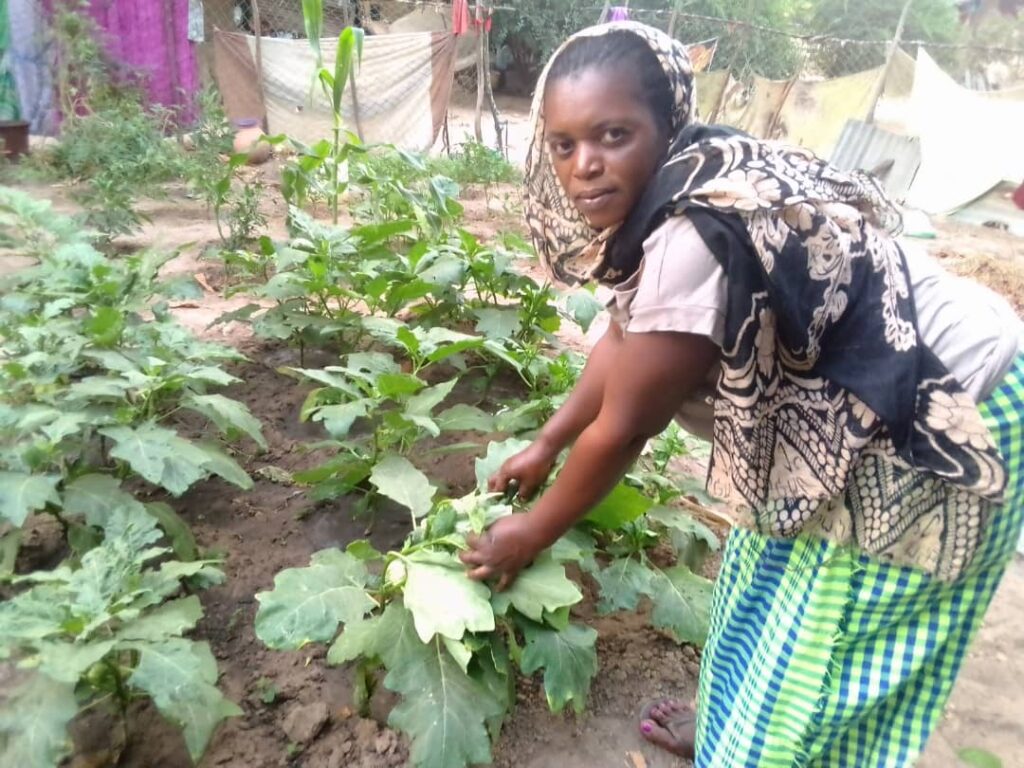Gendered ideas are built into every culture’s norms and often into language itself. These stereotypes limit possibilities for people of all genders and perpetuate norms that cause harm. This year, on International Women’s Day, we have a chance to change that by committing to #BreakTheBias.
Rise Against Hunger strives to understand how gender norms affect food security. According to the World Economic Forum, 70% of food in Africa is produced by women, yet women rarely own land or have equal access to training, quality seeds, tools or credit. Worldwide inequity results in women smallholder farmers producing 20% to 30% less food than male farmers. This directly translates into hardships for many families, as it limits the amount of food and money available for household needs. The good news is that the global rate of hunger could decrease by 17% simply by ensuring that women smallholder farmers have equal access to resources like training and productive assets.


Rise Against Hunger works with community partners to identify barriers to food and nutrition security, paying particular attention to whether women face different constraints than men and what they will need to overcome them. With access to the right resources, women are making huge strides in their production and consumption of nutritious foods!
Fatou* is one woman farmer whose production has flourished since she joined the Leveraging Agriculture to Unite Communities and Hospitals project, implemented in partnership with Development in Gardening, in southern Senegal. Living near an urban area, Fatou’s farming practice was previously limited to growing mainly cash crops using chemical fertilizers and readily available seeds. The project supports a farmer field school through which she learned climate-smart agriculture techniques like conserving water, producing organic fertilizers and intercropping many varieties of vegetables. With these skills, Fatou is empowered to choose the farming approaches that work best on her farm. She has lengthened her growing seasons and harvested more food. She said, “My enthusiasm for home gardening is being driven by my family. We’ve seen a reduction in the amount of money that we spend on vegetables because we’re able to source our vegetables right from the home garden. In addition, I’ve added a source of income by selling my produce to my neighbors in the community.” Since joining the project, Fatou has increased her income by 40%, enabling her to repay her debts and pay for school fees.
Fatou is one of many Leveraging Agriculture to Unite Communities and Hospitals participants who have overcome hurdles like limited access to land and knowledge of climate-smart agriculture. By breaking the bias that limits women smallholder farmers, Fatou and her neighbors succeeded in producing diverse, nutritious foods. By the end of 2021, garden group members collectively grew 22 varieties of fruits and vegetables and consumed nearly 42% of what was harvested. By growing their own fruits and vegetables, participants consistently report a 40% reduction in household expenditures on these foods and an increase in the quantity consumed. When one woman makes these changes, her whole household benefits from eating nutritious meals.
Donate today to support Rise Against Hunger’s work to implement sustainable agriculture projects, like Leveraging Agriculture to Unite Communities and Hospitals, that empower women — as well as children and men — around the world.
*Fatou’s name has been changed to protect her identity.
The post Women Farmers Produce Diverse, Nutritious Foods to #BreaktheBias in Senegal appeared first on Rise Against Hunger.
